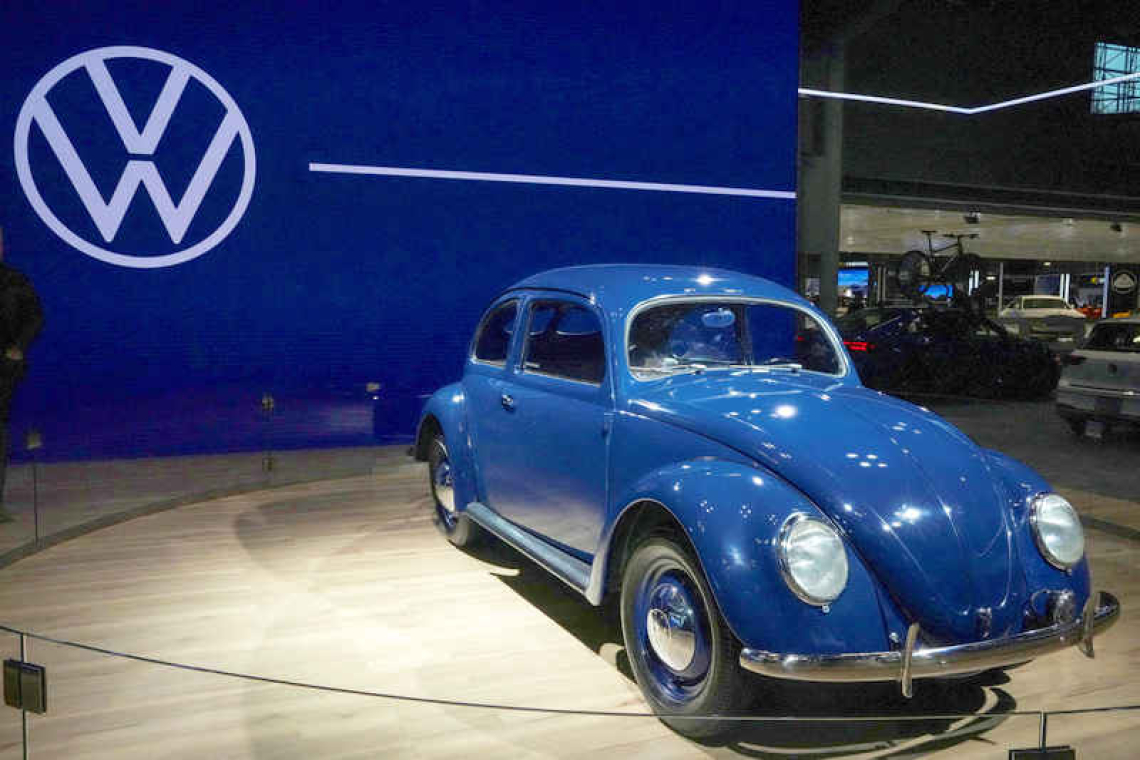BERLIN--When Volkswagen Group last month invested $5 billion in U.S. electric truck-and-SUV maker Rivian, the startup's shares soared on the cash infusion.
And Volkswagen's stock dropped 1.6%. Some analysts praised the creation of a Volkswagen-Rivian joint venture to help the German giant with software. But the investment raised cost concerns and reinforced how Volkswagen's problems in critical areas undermined its EV transition globally. The world's second-largest automaker faces a vexing landscape of challenges in Europe, the U.S. and especially China, where domestic EV makers led by BYD are swiping its market share. It has lost more stock value than any major competitor over the past two years. By 2030, Volkswagen plans more than 30 new electric or hybrid models in China and hopes to boost sales to about 4 million, from about 3 million today, lifting its market share to 15%. But in the near term, Volkswagen CFO Arno Antlitz told Reuters the company expects to continue losing China market share and hopes to merely maintain its position in Europe. Volkswagen's troubles in China underscore bleak prospects for foreign automakers in the country, where homegrown EV-makers are dominating the world's fastest electric-vehicle transition with high-tech, low-cost models. Volkswagen is particularly vulnerable because China accounts for about a third of its sales. That leaves Volkswagen's much-smaller U.S. operation shouldering its biggest growth ambitions: the carmaker plans to more than double its U.S. market share to 10% by 2030. About a dozen investors and analysts interviewed by Reuters expressed skepticism that the automaker has found the formula to achieve a sales boom. Volkswagen, they said, lacks a distinctive U.S. brand identity or breakthrough product plans in a crowded market that favors larger vehicles and has proven resistant to EVs. One upside: VW won't have to compete with Chinese EVs in the U.S., which in May levied 100% tariffs on them. Speaking with Reuters in February, Antlitz said Volkswagen has launched initiatives to boost its competitiveness in China over the next two years. "Until then," he said, "we do not expect rising market share — rather the opposite." In a written response to questions last week, a Volkswagen spokesperson added that the automaker expects to achieve cost parity with local competitors for compact cars by 2026, and aims to remain the largest international carmaker in China and third-largest overall. "Profitability is our top priority," the spokesperson said. "We will not grow at any price." Volkswagen's China share dropped from 19% in 2019 to 14.5% last year. It has notched modest sales growth in the U.S. but will need to supercharge that to meet its market-share target. The Rivian tie-up is part of that U.S. strategy but won't result in any new models to boost sales. The 50-50 venture will instead develop software and other technology for both automakers. Still, Volkswagen said it hopes products made with technology produced by the venture will attract new customers. Rivian declined to comment on how it could influence Volkswagen's sales. Volkswagen said it is planning more than 30 battery-electric models for the U.S. market, without providing details. What's known is that Volkswagen will launch two electric models, a pickup and an SUV, in late 2026 under the Scout nameplate, a historic American off-road brand, to be built at a new $2 billion South Carolina factory with capacity for 200,000 units. Scout CEO Scott Keogh told Reuters the plant could expand to double that size, but declined to say what output he expected by 2030. Continuing on the retro theme, Volkswagen will release an electric version of its iconic Microbus called the ID. Buzz later this year. It also plans new gas-powered SUVs, VW's U.S. chief Pablo di Si said in an April interview with Reuters, and possibly new plug-in hybrids. "I know we have aggressive targets," di Si said. "Our plans are very solid." Investors will need convincing. Volkswagen faces entrenched competitors in hybrids (Toyota, Ford) and SUVs (GM, Ford, Toyota). EV demand is waning globally but especially in the U.S., where they accounted for 8% of all 2023 sales. Jeffrey Scharf, a former Volkswagen investor who now owns Mercedes-Benz stock, called VW's market-share goal hopelessly optimistic. "If they had something like full self-driving or some other unique feature before anyone else did, I'd see it," he said. "But they don't have a recognizable niche anymore."







